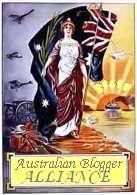Has the true meaning of Christmas been lost amid the retail madness and is society poorer for it?
Pressure, pace and profits - are these the real meaning of Christmas in the 21st century? Is it now all about credit card debts that take until November to pay off, the pressure of high expectations and that frantic lastminute rush, family arguments (or loneliness), advertising that starts in October, and the unrelenting ring of the till? Like Mother's Day, has Christmas become merely a retail festival, immediately followed by another in the Boxing Day sales?
For years, Christians have lamented the loss of meaning in their holy day and now they are being joined by nonbelievers, who don't much like what it has become.
"Christmas is excruciating, vulgar and banal," says Philip Adams, the religion-baiting broadcaster and professional curmudgeon. "I wish the whole thing would disappear."
Psychiatrist Louise Newman believes dissatisfaction in the secular community with the lack of meaning in Christmas is widespread. Humanists and non-believers have used Christmas as a time for reflection, she says, and replacing it with frantic materialism has affected them, too.
AdvertisementAdvertisement
"We are living in a time when there are big implications about loss of meaning and its replacement with materialism," she says. "People are increasingly aware there's a price to be paid for rampant consumerism, even if they can't articulate it.
"There's a hollowness round compulsory festivals for no purpose. People are doing it, but they are not enjoying it, and it serves no useful purpose in connectedness."
Newman says the erosion of meaning at Christmas can also be attributed to the fact that people are reluctant to talk about its purpose or symbols for fear of offending others.
"We don't talk about beliefs, whatever they are."
When the public aspect of Christmas gets so radically degraded by commercialism, then people must wonder even why they get together that day as a family.
According to Professor John Catford, Dean of Health and Behavioural Science at Deakin University, the downtime which was so important for nonreligious people at Christmas is being eroded. Christmas used to be a way of closing one year and preparing for the next, but now it's just a huge rush.
"It's go, go, go, then people pack into cars or fly off," he says. "The symbolism is escaping us. It's a great shame."
Philosophers, as always, are divided about the contemporary meaning of Christmas. Tony Coady, a Catholic professor at a secular university, has little sympathy for the lamenters, Christian or secular; while Raimond Gaita, an agnostic professor at a Catholic university, thinks what has happened to Christmas is a real loss.
Gaita, professor of philosophy at the Australian Catholic University and moral philosophy at King's College, the University of London, says Christmas has three aspects: the first, for Christians, involves belief in Jesus the Redeemer; the second is the semipagan Santa Claus element; and the third is the family.
"It's the time when families get together - all the family, even if you don't like Uncle Joe. People have felt that to be very important. The Santa Claus stuff must seem rather thin in a society as cynical as ours, in which children are so sophisticated.
"When the public aspect of Christmas gets so radically degraded by commercialism, then people must wonder even why they get together that day as a family. And the answer that we've always done it won't suffice because the reason they always did it was because it was Christmas."
Gaita says people can certainly respect traditions based on beliefs they don't share. But when they lose that respect, it becomes very hard to take part even in the secular aspects of it.
"It may be worth wondering why people go to Anzac Day in such numbers. Is it because Christmas has lost its capacity to nourish public spirit in the same way?"
Coady, from Melbourne University's Centre for Applied Philosophy and Public Ethics, recognises that people have a sense of loss, but sees it as self-indulgent, and often in bad faith.
"There has always been a great deal of celebration, present-giving, buying and selling, drinking and merriment associated with Christmas. No doubt it can be excessive in various ways, but I don't think Christianity should be essentially hostile to outbreaks of human sociability and enjoyment," he says.
Some engage in this sociability with a sense of its religious significance, some don't, he says. And perhaps there is less of the religious tinge to Christmas celebrations these days. But it is hard to be certain, since nostalgia for the good old days invariably distorts understanding of the present and past.
Coady says that the non-religious complaining about the disappearance of religion always strikes him as comical.
"It's a bit like the Anglican chaplain from a British university that I once knew who stayed (for free) at a German Benedictine monastery on his holidays, and moaned mightily to me about how the Order had abandoned its old strict practices, none of which he could have endured for a minute."
Adams is even less sympathetic.
"The Christians ripped it off, anyway. I speak for the Romans in this - not the Catholics - the ancients. We are a bit miffed that Saturnalia has been lost."
Nor does he sense much of a decline. He says at 65 he has been singing Rudolph the Red-Nosed Reindeer all his life. The seasonal muzak in retail stores has been around half a century; it's just that the marketing is louder.
"Since Coca-Cola invented Father Christmas, it's been game, set and march for secular society, with a desperate attempt by the church to hang on to the last vestiges. It's pretty awful because the culture is so vulgar. The music is so banal. Bach would be upset, along with other composers."
Melbourne's Anglican Archbishop Peter Watson regrets what is happening to Christmas, but not for the church's sake. The cost, he says, is borne by the wider world as it turns its back on the source of its Western, Judeo-Christian value system.
"It's a very different Australia to the one I grew up in. We are now in danger of whole generations of Australians who have no understanding of where those values we take for granted come from."
Watson is also concerned about the sort of intolerance that won't allow kindergartens or primary schools to put the nativity story into Christmas celebrations.
"There are Anglo-Australians who say you can't do that because it's a multi-faith society. But 70 per cent have some affinity with Christmas, today, on their own say so, and other faiths encourage us to celebrate with integrity.
"It's almost as though there's a fifth column in Australian society, and I don't understand the agenda. It's an example of the very sort of intolerance we don't want in Australian society. It's more serious than the secularisation of Christmas."
Yasser Soliman, president of the Islamic Council of Victoria, blames budget-conscious bureaucrats for dampening school Christmas celebrations.
"What it comes down to is bureaucrats talking dollars and cents. If they have to spend on Christmas celebrations (they say) they haven't got the money to spend on other religion's celebrations, but this is nothing to do with Islam, it's budgets."
Soliman says Muslims are not offended at Christians celebrating Christmas. At the core of it is goodwill to others, as it is in Muslim festivals such as Eid, the gift-giving feast that marks the end of the fasting month of Ramadan.
But he has noticed that Jesus used to be more central to Christmas.
"Now it seems a bit of a blur, and if people haven't been told the story of Christmas, they could think that Santa is central to it."
Rabbi Fred Morgan of Temple Beth Israel also regrets the weakening of the religious element of Christmas. He interprets religion broadly as giving meaning and richness beyond the everyday, and society is much poorer when it loses this.
"For Christians, Christmas is part of their system of meaning. If it's cheapened it becomes a form of idolatry - to a Christian. I don't enjoy the commercialisation of Christmas myself."
Secular people are realising that the disengagement between Christmas and what it is really about is diminishing a powerful aspect of life experience, Morgan says.
"I can appreciate the richness of a religious tradition without it being my religion tradition, and some secular people feel the same. There's a real diminution of meaning in the world."
Melbourne theologian Andrew McGowan says the answer for Christians, and other faiths, is to observe the integrity of their festivals on their own terms, and not be swamped by secular versions. But the Christian reaction against commercialisation, such as, in some cases, not buying presents, misses the point, he says.
"Because we don't know how to fast any more, feasts have lost their meaning. Christmas is a dysfunctional attempt to separate a feast from the rest of the time because the rest of the time is mitigated excess anyway."
Anglican priest Howard Langmead is trying to restore some meaning and simplicity to Christmas; he is offering children a photo opportunity to share in a nativity scene at St Paul's Cathedral. The women of the West Brunswick church have prepared costumes in various sizes for angels, shepherds, wise people, Joseph and Mary.
The response has surprised him. "People tell me they don't go to church, but it's a fabulous idea and they'll bring their children. They say Christmas is too secular, too commercialised; they want their kids to know about the true meaning of Christmas."
The nativity scene is deliberately simple: Hessian backdrop, straw on the ground, and a manger. But even here, the realities of a counterfeit Christmas intrude: when there is no available child, the infant Jesus is a doll made of plastic.






3 Comments:
I would agree that slowly but surely the true meaning of Christmas is being lost.
Too much emphasis is being placed on gift giving and not enough on what the Christmas is supposed to represent.
What is the TRUE meaning of "Christmas"? It IS the celebration of the rebirth of the sun. Since no one knows when Christ was born, the best guess being Sept/Oct, "Christmas" can not properly be associateded to his birth. This end of the year celebration called "Christmas"is a mixture of just too many pagan customs it makes one's head swim. At least that is what my human says.
Thanks to both of you for sharing your opinions :)
Post a Comment
Subscribe to Post Comments [Atom]
<< Home